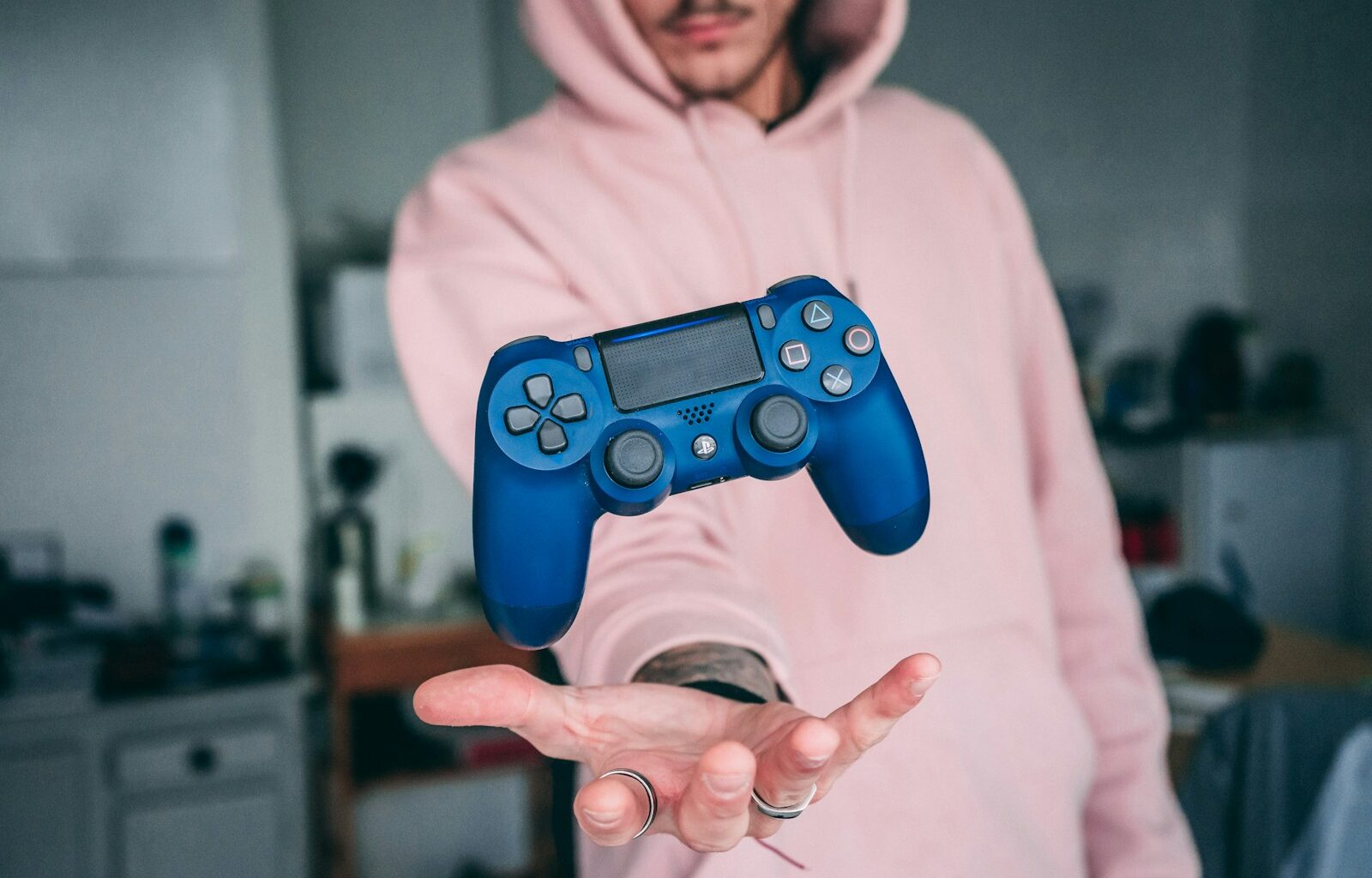Games trigger powerful psychological reward systems that create compelling engagement through carefully designed feedback loops, achievement structures, and social connections. Neuroscience research from Stanford University shows that gaming activates the same dopamine pathways as gambling and substance use, with 78% of players reporting difficulty stopping during engaging sessions, while brain imaging reveals that game rewards trigger pleasure responses 3x stronger than typical daily activities.
1. Dopamine Systems and Reward Mechanism Activation
1.1 Variable Ratio Reinforcement Schedules
Games use unpredictable reward timing that creates the strongest psychological reinforcement patterns, similar to gambling mechanics. This variability keeps players engaged because the next reward could come at any moment, creating anticipation that’s more compelling than guaranteed outcomes.
1.2 Achievement and Progress Feedback Loops
Constant progress indicators, experience points, and achievement unlocks provide regular dopamine hits that maintain engagement and motivation. These micro-rewards create satisfaction cycles that make stopping feel like interrupting positive momentum.
1.3 Near-Miss Psychology and Continued Engagement
Games often present near-success situations that almost achieve goals, triggering the same psychological response as near-wins in gambling. These near-misses create frustration that motivates continued play to achieve the narrowly missed objective.
1.4 Escalating Reward Structures and Tolerance Building
Games gradually increase reward requirements and introduce more impressive achievements, creating tolerance that requires longer play sessions to achieve the same satisfaction levels as earlier, simpler accomplishments.
2. Social Connection and Community Belonging
2.1 Tribal Identity and Group Membership
Gaming communities provide strong identity and belonging that fulfill fundamental human social needs through shared experiences, common goals, and mutual support. Players develop deep connections with teammates and guild members that extend beyond gaming.
2.2 Social Status and Recognition Systems
Games provide clear status hierarchies and recognition systems that offer social validation and respect from peers. Leaderboards, rankings, and achievement displays create social motivation that drives continued engagement and improvement.
2.3 Cooperative Achievement and Shared Success
Team-based accomplishments create powerful bonding experiences and shared pride that strengthen social connections while providing motivation to maintain group commitments and participation.
2.4 Social Obligation and Commitment Psychology
Group activities and team responsibilities create social pressure to remain active and available, transforming gaming from personal entertainment to social obligation that’s difficult to abandon without disappointing others.
3. Mastery and Competence Development
3.1 Skill Progression and Expertise Building
Games provide clear skill development paths with measurable improvement that satisfies the psychological need for competence and mastery. Players experience genuine growth in abilities that creates intrinsic motivation to continue developing.
3.2 Challenge-Skill Balance and Flow States
Well-designed games maintain optimal challenge levels that create flow states where players lose track of time and become completely absorbed in gameplay. These flow experiences are inherently rewarding and create desire for repetition.
3.3 Personalization and Character Development
Character customization and development create personal investment and attachment that makes abandoning progress feel like losing part of personal identity. Players become emotionally invested in their virtual personas and achievements.
3.4 Expertise Recognition and Teaching Opportunities
Advanced players gain opportunities to mentor newcomers and demonstrate expertise, providing social validation and purpose that extends engagement beyond personal achievement to community contribution.
4. Escapism and Stress Relief Mechanisms
4.1 Alternative Reality and Control Fantasy
Games provide controlled environments where players have agency and can succeed through effort, contrasting with real-world situations where outcomes may be uncertain or beyond personal control. This control fantasy provides psychological relief and empowerment.
4.2 Stress Reduction and Emotional Regulation
Gaming can provide effective stress relief and emotional regulation through distraction, achievement, and controlled challenge. Players often use games to decompress from work or personal stress, creating habitual reliance on gaming for mood management.
4.3 Identity Exploration and Self-Expression
Games allow experimentation with different personalities, roles, and behaviors without real-world consequences. This identity exploration provides psychological benefits while creating attachment to virtual personas and experiences.
4.4 Temporary Problem Avoidance and Coping
Gaming provides temporary escape from real-world problems and responsibilities, offering psychological relief that can become habitual when facing ongoing stress or challenges in personal or professional life.
5. Fear of Missing Out (FOMO) and Scarcity Psychology
5.1 Limited-Time Events and Exclusive Content
Games create artificial scarcity through temporary events, seasonal content, and exclusive rewards that trigger fear of missing out. This scarcity psychology motivates immediate and continued engagement to avoid permanent loss of opportunities.
5.2 Social Comparison and Competitive Pressure
Seeing others’ achievements and progress creates competitive pressure to maintain pace and avoid falling behind peers. Social comparison motivates continued play to maintain status and avoid feeling left behind.
5.3 Investment Protection and Sunk Cost Psychology
Time and money invested in games create psychological commitment to protect those investments through continued play. Players feel they cannot abandon games without losing the value of previous investments.
5.4 Momentum Maintenance and Streak Psychology
Daily login bonuses and streak systems create psychological pressure to maintain momentum and avoid breaking positive patterns. Missing days feels like losing progress and wasting previous consistency efforts.
6. Designed Addiction and Engagement Optimization
6.1 Behavioral Psychology Application in Game Design
Game developers employ behavioral psychologists and use player data to optimize engagement and retention through carefully designed reward schedules, difficulty curves, and progression systems that maximize playing time.
6.2 Monetization Psychology and Spending Triggers
Free-to-play games use psychological triggers to encourage spending through convenience, time-saving, cosmetic enhancement, and competitive advantage. These triggers create ongoing financial investment that increases psychological commitment.
6.3 Retention Mechanics and Comeback Strategies
Games include specific mechanics designed to bring back lapsed players through special offers, simplified progression, and nostalgia triggers that reactivate dormant accounts and rebuild engagement habits.
6.4 Data-Driven Engagement Optimization
Gaming companies analyze player behavior data to identify engagement patterns and optimize game elements that increase retention, session length, and long-term participation through scientific psychological manipulation.
7. Healthy Gaming and Addiction Management
7.1 Awareness and Self-Monitoring Strategies
Recognize gaming engagement patterns and set specific time limits, break schedules, and awareness practices that maintain conscious control over gaming habits rather than allowing unconscious engagement escalation.
7.2 Alternative Activity Development
Develop other engaging activities and social connections that provide similar psychological benefits—achievement, social connection, skill development—without the designed addiction elements of commercial gaming.
7.3 Gaming Selection and Harm Reduction
Choose games with natural stopping points, avoid those with aggressive monetization or addiction mechanics, and prefer single-player or cooperative games over competitive multiplayer environments that create social pressure.
7.4 Professional Help and Support Systems
Recognize when gaming interferes with essential life activities and seek professional help or support groups specifically designed for gaming addiction recovery and healthy relationship development with technology.
Conclusion
Games hook players through sophisticated psychological mechanisms that trigger reward systems, social needs, and escapism desires in ways that can override rational decision-making about time and priority management. Understanding these psychological triggers enables more conscious gaming choices and better balance between gaming enjoyment and life responsibilities. The key lies in awareness of manipulation tactics while appreciating games’ legitimate entertainment and social value. Healthy gaming requires recognizing when engagement becomes compulsive rather than recreational and developing strategies to maintain control over gaming habits rather than allowing games to control your time and attention.












